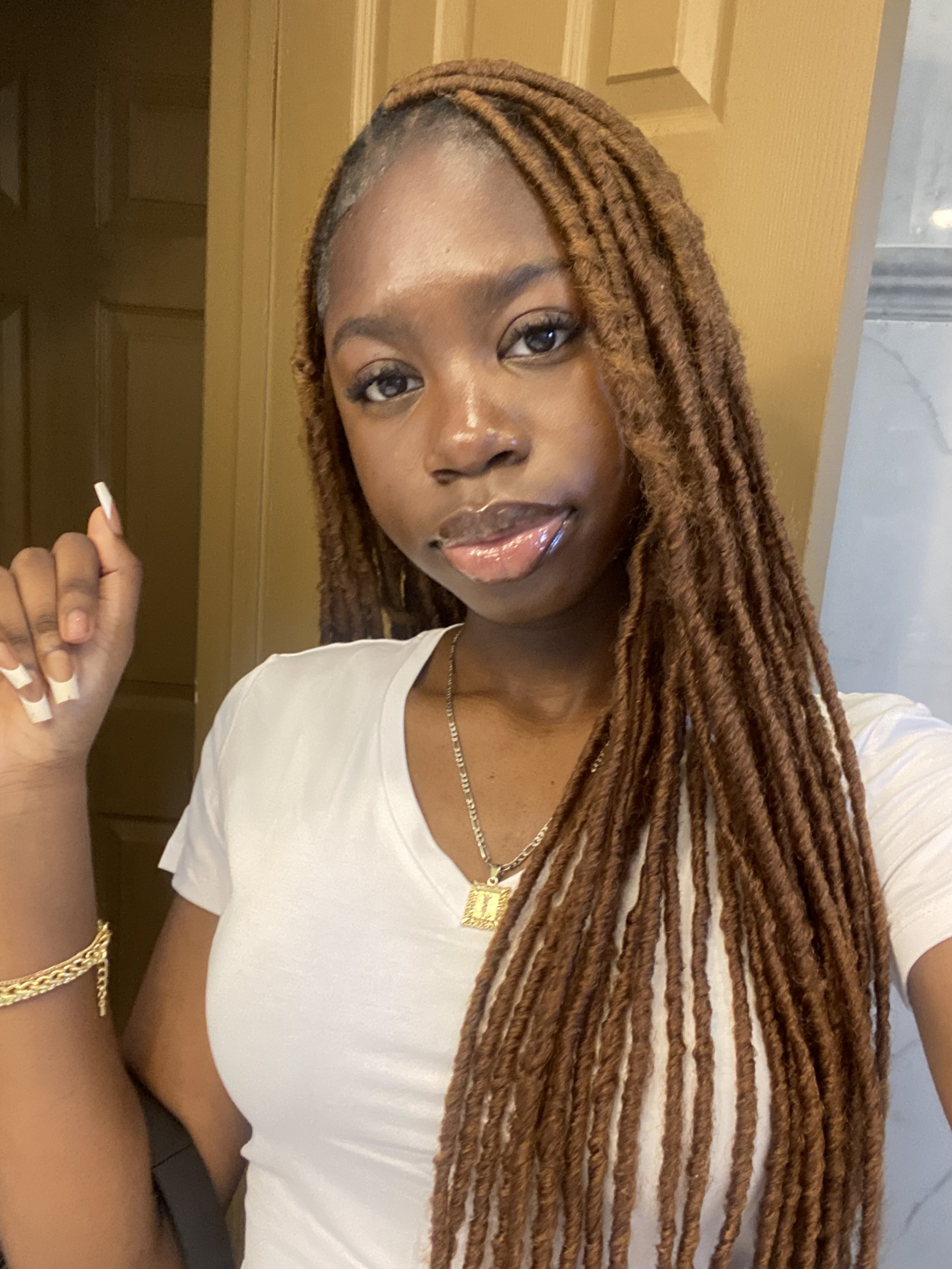Dear diary, or whoever is listening, I think
my wife is dead
Dear diary, or whoever is listening,
I think my wife is dead.
I don’t know. Maybe not dead– that is a pretty harsh word to assign to someone– but
she’s certainly not living. It can be seen in the stretching and shrinking of her mouth as she speaks; the yellow of her
eyes, as if she’s been submerged in water; her skin reshaping and recoloring under our white
fluorescent lights in the kitchen or besides the lamp sitting on our bedside table; her hand
stroking the cool glass even after her cup has fallen and shattered on the floor, and I wipe the
warm, red liquid away.
It is clear, at least to me, speaking to the grain of a gravestone, whenever I try to strike up small
conversation with her. It is like speaking to a corpse. It is like speaking to a fabricated image of her. She still has
the same auburn curls, the same brown eyes and brown skin, the same curves. But, she does not have the
same bounce in her step, does not have the same pristine teeth, does not have what made her
my wife that rainy day of our wedding.
It is not her at all.
Doctors assure me, it is fine, this is normal.
I tell them, she is not.
Nighttime, when the moon has carved a smile into the dark sky, is the most peace I can get.
We sleep in separate rooms now, she and I. But even with our distance, I startle awake when I hear
her groaning body on the creaking floorboards. I’ve never been a religious man, but as I guide
her back to bed, I pray.
Dear God, please don’t open her eyes.
Dear God, I don’t want to know who or what is masquerading as my wife, invading
this home, but I want it gone.
Some days, I have enough, and I snap. I demand that she leave, spit flying from my
tongue. She stares at me – goddamn, I hate that damn stare – and says, in that clear chime of a
voice, “I have nowhere to go.” I weep into my sweat-sticky palms and don’t talk to her for a while.
Some nights, beneath the black clouds, I visit our local graveyard. If my wife is dead – if–
then, I want to be sure of it, that I am mad and speaking to a ghost. If she is lying in a
casket, I want to knock on the wood. If I left a bundle of flowers on top of the soil, I want to pluck
every petal off each stem.
Of course, there are no caskets or flowers.
I want to laugh, really. Or scream. Both sounds the results of heightened emotion, so
what’s the difference? Occasionally, the police stop by after the neighbors see me pacing on the
lawn and have a marital argument with my-wife-who-is-dead-but-who-is-not-dead-at-all. The cop in the
front of his squad says, “We’re just going to check things out, okay?” The cop in the back narrows his
eyes when he sees me, sees how awful I look. The third cop pats my shoulder and says, “It’s okay,
you’re good,” lacking any sort of conviction. The fifth and fourth cop aggressively scour
through my belongings, as if there’s anything to find. “Why would there be anything to find?” I say
to no one, not even myself. The third cop pats my shoulder again.
When the police leave, there is a purple glint in the irises of my wife’s eyes.
Dear diary, or whoever is listening,
I hope my wife stays dead, so I never have to see those eyes again.
Vi Erisha ‘28
I suppose I had two ideas in mind when writing this. The wife "came back wrong," as in she's traumatized, and when you go through intense trauma, I guess you do come off as dead or wrong. The second idea was that the husband had murdered his wife, which was hinted at throughout the piece, but never directly mentioned. This piec is a diary entry, and, as such, it is meant to be messy and uncoordinated.
Misshapen Kin
Knife in trembling hands,
the quivers of a wrist.
Skin-crushing skin, the bruise-inducing
juts of your pointer and middle finger
leave you undefended,
pinned against a white wall.
White lights squish and pull apart red limbs from white tears, break arms — expose.
White room isolates, segregates color from life.
White face, pale and fearful. Raised eyebrows, shrieks of despair.
Blood drawn, smeared, dragged against her flesh. Leaks from her mouth, drowns her cries in crimson. Her eyes are bloodshot, dilated pupils — black on red.
Knife smothered beneath her bloodline.
Cuts into years of terror, horror homes.
Years of screams, and a lifetime of white walls
come to an end with the sharp slice of skin on steel.
Jennyfer Loizeau ‘25
Created from a writing exercise, this piece is based on the movie “The Shining,” and it reflects the troubled relationship between two people.


